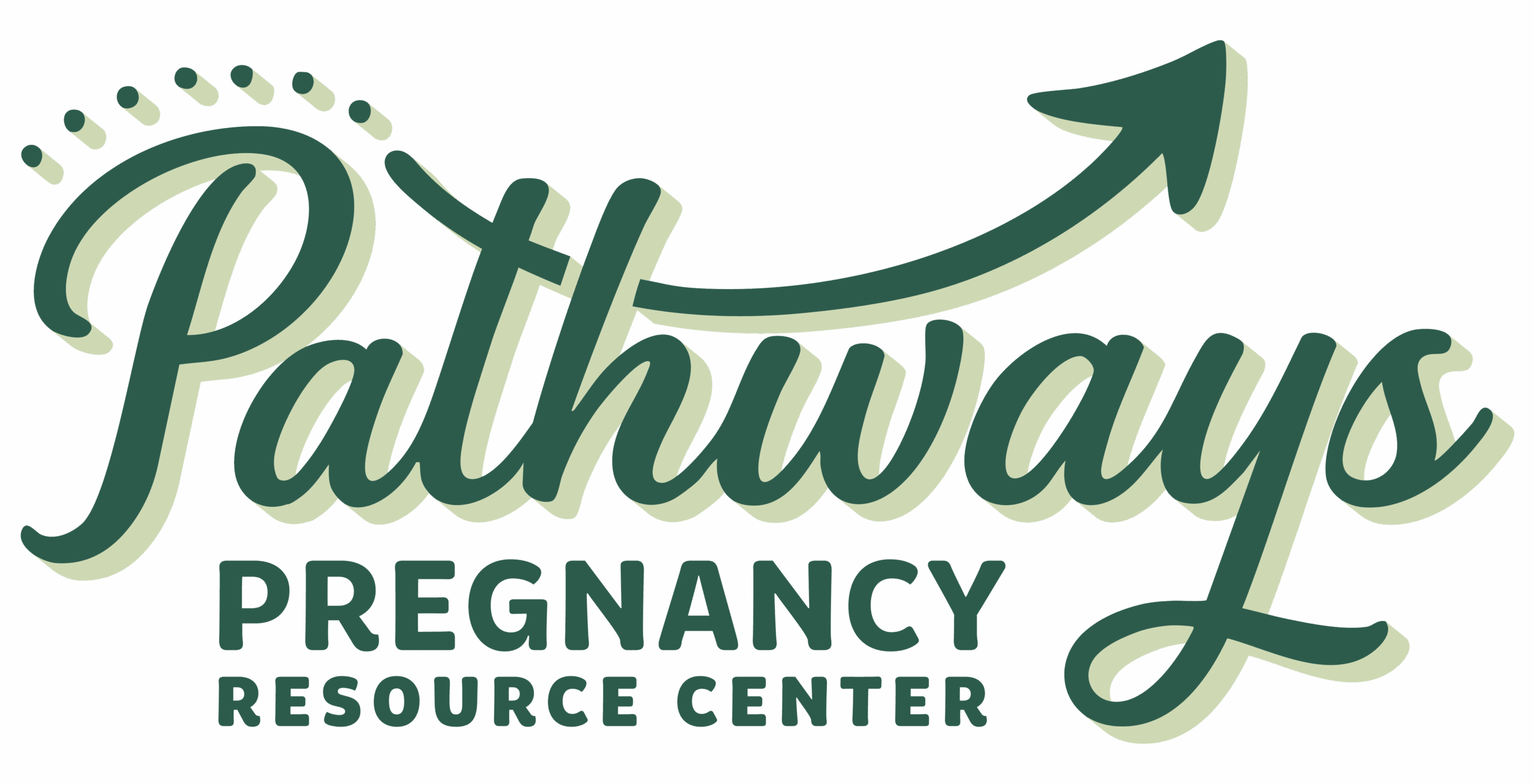

Considering Abortion in La Plata County, Colorado?
To ensure you are informed about your abortion options and next steps, the compassionate professionals at Pathways Pregnancy Resource Center provide:
- Information about different types of abortion procedures
- Discussion of potential physical and emotional side effects
- Answers to frequently asked questions about abortion
- Information about your other options, adoption and parenting
Get the facts first, because you deserve to make a fully informed and empowered decision.

Your Abortion Options
The Abortion Pill
The abortion pill, also known as a medical abortion, involves two separate medications taken over several days. First, Mifepristone blocks the hormone progesterone needed to maintain pregnancy… (more)
Surgical Abortion
The most common surgical abortion method is aspiration. This method surgically removes the embryo (conception to 11th week of pregnancy) or fetus (11th week to birth) from the uterus… (more)

Step 1: Confirm Your Pregnancy
Before considering abortion, it’s essential to confirm your pregnancy and determine how far along you are. Pathways Pregnancy Resource Center offers:
- Free self-administered pregnancy tests – Get your confidential results in 5 minutes
- Referral for a free ultrasound – Determine gestational age and confirm proper uterine development
- Viability: An ultrasound determines if your pregnancy is viable and progressing normally. This helps rule out miscarriage in progress or ectopic pregnancy, conditions where medical abortion wouldn’t be appropriate or necessary.
- Gestational Age: Knowing exactly how far along you are is critical because the abortion pill is only FDA-approved for pregnancies up to 10 weeks gestation.
Having accurate pregnancy information is crucial for making an informed choice about your next steps.

Step 2: Learn About All of Your Pregnancy Options
Whether considering abortion, adoption, or parenting, having complete information about each path allows for informed decision-making.
At Pathways Pregnancy Resource Center, we provide comprehensive information about all pregnancy options without pressure or judgment, helping you fully consider the implications of each choice.
We offer comprehensive pregnancy support services at no cost, including:
- A self-administered pregnancy test
- A care coach to listen, and provide information about all of your options with no judgement or pressure
- Referral to a free ultrasound
- Birth-ready classes taught by a professional doula
- Adoption referrals
- Online parenting classes
- Material support, including maternity essentials and a car seat
- Referrals to additional resources and support available in our community
- Reproductive loss support after an abortion, miscarriage or still birth
Our team understands the challenges of an unintended pregnancy and is committed to helping you feel informed, supported and empowered as you make decisions about your future.


Step 3: Understand Abortion Types and Risks
The Abortion Pill (Medication Abortion)
The abortion pill involves two separate medications taken over several days:
Mifepristone (First Medication):
- Blocks the hormone progesterone needed to maintain pregnancy
- Causes the embryo to stop growing
- Taken at a medical facility under supervision
- If you change your mind after taking this first pill, the process can be reversed with counteracting medication. Click here to call the Abortion Pill Reversal Hotline.
Misoprostol (Second Medication):
- Taken 24-48 hours after mifepristone
- Causes uterine contractions to expel pregnancy tissue and the embryo
- Usually taken at home
- Most effective at or before 10 weeks of pregnancy
Surgical Abortion Procedures
Aspiration/Suction Abortion:
- Most common surgical abortion method
- Uses suction device to remove embryo or fetus through the vagina
- Performed at abortion clinic as an outpatient procedure
- Typically completed the same day


Abortion Risks and Complications to Consider
Understanding potential risks helps you make a fully informed decision about abortion procedures.
Incomplete Abortion[1]:
- Failure to remove all fetal tissue completely
- More common with abortion pill than surgical procedures
- May require additional surgical intervention to prevent infection or bleeding
- Occurs in approximately 2-7% of medication abortions
Failed Abortion[2]:
- Pregnancy continues despite abortion attempt
- More common with medication abortion
- May require surgical procedure to complete abortion
- Some women choose to continue pregnancy when this occurs

Infection Risk[3][4][5]:
- Can result from instrument insertion or retained tissue
- May develop into serious pelvic inflammatory disease (PID)
- Severe cases can lead to sepsis (life-threatening body-wide infection)
- Can cause scarring that impacts future fertility
Hemorrhage (Heavy Bleeding)[6]:
- Approximately 1 in 100 women using abortion pill require surgical intervention for bleeding. As many as 15% will experience hemorrhage.
- May require emergency medical treatment
- Can be life-threatening if not treated promptly
Physical Injury[7]:
- Risk of cervical or uterine damage from surgical instruments
- Rare but serious complications include organ puncture
- Risk increases with later gestational age
- May require surgical repair


Long-Term Health Considerations
Impact on Future Pregnancies [8][9][10][11][12]:
- Research indicates there is increased risk of preterm birth in subsequent pregnancies
- Studies show potential link to low birth weight in future babies
- Risk may be higher with multiple abortions
- Discuss personal risk factors with your healthcare provider
Step 4: Get Tested for Sexually Transmitted Infections (STIs)
STI testing is crucial before any abortion procedure because:
- Many STIs have no obvious symptoms
- Untreated STIs significantly increase infection risk after an abortion[13]
- It protects your overall reproductive health
Give us a call at 970-247-5559 or make an appointment online today.

Step 5: Ensure that you have someone to turn to
Following your abortion, you may experience a physical complication or emotional pain. It is important that ahead of your procedure, you plan for who will help you through these circumstances. Choose someone you trust who will help you get the medical attention you need or help you process your experience in a healthy way and heal emotionally.
Pathways Pregnancy Resource Center offers free reproductive loss support after an abortion, miscarriage or still birth.
Give us a call at 970-247-5559 or make an appointment online today.
Please note: Pathways Pregnancy Resource Center provides information and pregnancy services but does not perform or refer for abortion procedures or emergency contraception.

Frequently Asked Questions About Abortion
How much does abortion cost in Colorado?
Abortion costs vary based on procedure type, gestational age, and location. Additional costs may or may not include required consultations, testing, and follow-up care.
What are the abortion laws in Colorado?
Currently, abortion is legal all throughout pregnancy in Colorado.[14]
We strongly recommend receiving an ultrasound before considering abortion. Click here to learn more.
When should I seek emergency medical care after abortion?
Go to the emergency room immediately if you experience:
- Fever above 101°F (38.3°C)
- Heavy bleeding (soaking more than 2 pads per hour for 2+ consecutive hours)
- Severe abdominal or pelvic pain
- Foul-smelling vaginal discharge
- Signs of allergic reaction
- Persistent nausea or vomiting
Other Abortion Information
How Does Abortion Affect Mental Health?
An unplanned pregnancy can feel overwhelming and bring up complex emotions. If you're considering abortion, it's important to understand how it can affect you—both physically and mentally. The relationship between abortion and mental health is a topic every woman...
How Does Abortion Affect Relationships?
An unplanned pregnancy can create tension in a relationship. You and your partner might not agree on what to do next. If you’re thinking about abortion, you may wonder how it could impact your connection with your partner. Abortion is a big decision that can affect...
Pathways Pregnancy Resource Center provides generally accepted medical information and pregnancy services but does not perform or refer for abortion procedures or emergency contraception. All information on this site is subject to change and should not be considered medical or legal advice. Please consult your own professional in the event of specific medical or legal needs.
Sources:
- U.S. National Library of Medicine. (2024, October 15). Abortion – Surgical. MedlinePlus. https://medlineplus.gov/ency/article/002912.htm
- American College of Obstetricians & Gynecologists. (2020). Medication abortion up to 70 days of gestation. Obstetrics & Gynecology, 136(4), 855-858. doi:10.1097/ aog.0000000000004083. https://www.acog.org/clinical/clinical-guidance/practice-bulletin/articles/2020/10/medication-abortion-up-to-70-days-of-gestation#
- Stevenson MM, Radcliffe KW. Preventing pelvic infection after abortion. Int J STD AIDS. 1995 Sep-Oct;6(5):305-12. doi: 10.1177/095646249500600501. PMID: 8547409.
- Bridwell RE, Long B, Montrief T, Gottlieb M. Post-abortion Complications: A Narrative Review for Emergency Clinicians. West J Emerg Med. 2022 Oct 23;23(6):919-925. doi: 10.5811/ westjem.2022.8.57929. PMID: 36409940; PMCID: PMC9683756.
- Mayo Clinic. (2022, April 30). Pelvic Inflammatory Disease (PID). https://www.mayoclinic.org/diseases-conditions/pelvic-inflammatory-disease/symptoms-causes/syc-20352594
- U.S. Food and Drug Administration, (2016). Mifeprex Medication Guide. https://www.fda.gov/media/72923/download
- Paul, E. S. Lichtenberg, L. Borgatta, D. A. Grimes, P. G. Stubblefield, & M. D. Creinin (Eds.), 2009. Medical abortion in early pregnancy in Management of unintended and abnormal pregnancy: Comprehensive abortion care (pp.122-29). Chichester, UK: Wiley-Blackwell.
- American College of Obstetricians & Gynecologists. (2019). Pelvic inflammatory disease (PID). https://www.acog.org/womens-health/faqs/pelvic-inflammatory-disease
- Swingle, H. M., Colaizy, T. T., Zimmerman, M. B., Morriss, F. H. (2009). Abortion and the risk of subsequent preterm birth: A systematic review with meta-analyses. The Journal of Reproductive Medicine, 54(2), 95–108.
- Shah, P. S., Zao, J. (2009). Induced termination of pregnancy and low birthweight and preterm birth: A systematic review and meta-analyses. British Journal of Obstetrics & Gynaecology, 116(11), 1425–42. doi: 10.1111/j.1471- 0528.2009.02278.x.
- Moreau, C., Kaminski, M., Ancel, P.Y., Bouyer, J., et al (2005). Previous induced abortions and the risk of very preterm delivery: Results of the EPIPAGE study. Br J Obstet Gynaecol,5,112(4):430–37.
- Ancel, P.Y., Lelong, N., Papiernik, E., Saurel-Cubizolles, M.J., Kaminski, M (2004). History of induced abortion as a risk factor for preterm birth in European countries: Results
- Carlsson, I., Breding, K., & Larsson, P.-G. (2018, September 25). Complications related to induced abortion: a combined retrospective and longitudinal follow-up study. U.S. National Library of Medicine. https://www.ncbi.nlm.nih.gov/pmc/articles/PMC6156848/
- Colorado General Assembly. (2022, March 23). Reproductive Health Equity Act. https://leg.colorado.gov/bills/hb22-1279


